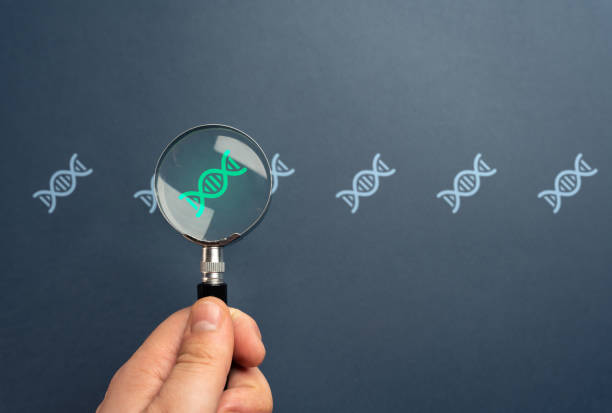Research
Exploring the World of Predisposition Genetic Testing
Predisposition genetic testing, a rapidly growing field at the forefront of personalized medicine, provides individuals with previously unattainable insights into their genetic predispositions for specific health conditions. This novel testing procedure examines an individual’s DNA to detect specific genetic variations associated with greater vulnerability to a variety of diseases and conditions, including cancer, cardiovascular disorders, and neurological diseases. Unlike diagnostic genetic testing, which seeks to confirm or rule out the presence of a specific disorder, predisposition genetic testing assesses an individual’s underlying risk factors, allowing for proactive disease prevention and early intervention.
In this article, we will look at the principles, applications, and ethical considerations surrounding predisposition genetic testing, and how it has the potential to change healthcare by providing individuals with tailored risk assessments and directing educated health management decisions.

Understanding Genetic Predisposition
Defining Genetic Predisposition
Genetic predisposition refers to an elevated risk of getting a specific disease due to a person’s genetic composition. It is the product of certain genetic mutations that are frequently inherited from a parent. Genetic testing can detect these genetic differences and assess a person’s risk of getting an illness.
One key point to remember is that having a genetic predisposition does not guarantee that a person will get the condition. Simply put, they are at a higher risk than someone who does not have the genetic variant.
Role of DNA and Genes in Predisposition
Our DNA contains genes that code for a variety of characteristics, including our vulnerability to specific diseases. Mutations in these genes can cause a hereditary predisposition to specific diseases. For example, mutations in the BRCA1 and BRCA2 genes raise the risk of getting breast and ovarian cancer.
Family history can also influence genetic propensity. If a person has a family member who suffers from a specific condition, they are more likely to have the same genetic variant that predisposes them to it. Genetic testing can help uncover these changes and assess a person’s risk.
It’s crucial to highlight that having a genetic tendency does not mean a person will develop the disease. Lifestyle factors, such as nutrition and exercise, can also influence illness development. However, being aware of a genetic tendency can help a person make informed health decisions and take steps to lower their risk.

Genetic Testing for Disease Predisposition
Genetic testing for disease predisposition is a sort of screening that determines whether an individual has a higher chance of having a specific disease owing to their genetic makeup. This type of testing can be beneficial for those who have a family history of a particular disease or who are concerned about their chances of developing a certain condition.
Types of Genetic Tests
There are various genetic tests available to identify an individual’s risk of having a specific disease. Some of the most prevalent types of genetic tests are:
Single gene testing looks for changes in a specific gene that is linked to a particular ailment. A single gene test, for example, might be used to assess whether an individual has a mutation in the BRCA1 or BRCA2 genes, which has been linked to an increased risk of breast and ovarian cancer.
Panel tests look for mutations in a set of genes associated with a certain ailment or group of conditions. A panel test, for example, can be used to assess a person’s risk of acquiring hereditary cancer syndromes.
Whole exome sequencing is a test that examines all of an individual’s DNA’s protein-coding regions to detect mutations that may be linked to a certain condition.
Interpreting Test Results
It is crucial to highlight that a positive genetic test result does not guarantee that an individual will develop the corresponding ailment. It just indicates that individuals have a higher probability of having the illness. Similarly, a negative test does not always indicate that a person is not at risk for the disorder.
Genetic counselors can assist individuals in interpreting their test results and determining what they indicate for their health. They can also help people make informed healthcare decisions and give advice on how to lower their risk of having a specific ailment.
Benefits of Early Diagnosis
Early detection of a genetic predisposition to a specific disease can be advantageous for a variety of reasons. It can assist individuals in making efforts to lower their chance of having the condition, such as changing their lifestyle or getting more frequent screenings. Early diagnosis can also help people make more informed healthcare decisions and bring peace of mind.
Informed consent is an essential part of genetic testing for disease predisposition. Individuals should be properly educated about the risks and advantages of testing before undergoing the treatment. They should also be able to discuss their concerns and ask questions with a genetic counselor before deciding to undergo testing.
Overall, genetic testing for disease predisposition can be an effective tool for those who are concerned about their chances of having a certain disorder. However, it is critical to remember that genetic testing is not a replacement for routine medical care and should be used in conjunction with other screening and diagnostic techniques.

Managing Genetic Risks
Individuals who have undertaken genetic testing and obtained a positive result for a genetic predisposition to certain diseases may feel overwhelmed and unsure of what to do next. However, there are various genetic risk management strategies that can assist individuals in making educated healthcare decisions.
Prevention and Lifestyle Choices
Preventing genetic risks and making lifestyle changes are two of the most effective methods to control them. This can involve implementing dietary and activity adjustments, quitting smoking, reducing alcohol use, and avoiding dangerous environmental factors. Individuals can help prevent disease onset by proactively reducing risk factors.
Cancer Surveillance and Surgery
Individuals who are genetically predisposed to cancer may benefit from regular cancer surveillance and surgery. This can involve routine screenings like mammograms and colonoscopies, as well as preventive surgery to remove at-risk tissue. While these procedures may appear severe, they can significantly lower the risk of cancer and improve overall health results.
Genetic Counseling and Clinical Practice
hereditary counseling and clinical practice can also be effective methods for addressing hereditary concerns. hereditary counselors can give people information about their hereditary risks as well as advice on how to manage them. Clinical practice guidelines can also assist healthcare practitioners in making educated decisions about treatment and screening options for patients with genetic predispositions to specific diseases.
Overall, addressing genetic risks necessitates a proactive strategy that includes making informed healthcare decisions, implementing preventive measures, and consulting with healthcare specialists. While genetic predisposition to specific diseases can be concerning, there are numerous effective techniques for mitigating those risks and improving overall health outcomes.

Ethical, Legal, and Social Implications
Predisposition genetic testing is an effective method for informing individuals about their likelihood of developing specific diseases depending on their genetic makeup. However, it creates a number of ethical, legal, and social issues that must be properly addressed.
Privacy and Discrimination Concerns
One of the key concerns about predisposition genetic testing is the risk of privacy infringement and prejudice. Genetic information is extremely personal, and people may be hesitant to undertake testing if they are concerned that their results may be exploited against them.
There is a possibility that employers or health insurance firms will utilize genetic information to discriminate against people based on their risk of certain diseases. For example, an employer may decline to hire someone who is at high risk of cancer, or an insurance company may charge higher premiums to people who have a hereditary propensity to heart disease.
Genetic Information Nondiscrimination Act
To address these issues, the United States enacted the Genetic Information Nondiscrimination Act (GINA) in 2008. GINA prevents health insurance firms and employers from discriminating against people based on their genetic information. It also prevents employers from collecting genetic information, with a few exceptions.
While GINA provides certain rights for those undergoing predisposition genetic testing, there are still questions regarding how the law will be enforced and if it will effectively prevent discrimination.
In summary, predisposition genetic testing holds the potential to provide individuals with useful information about their health risks, but it also poses a variety of ethical, legal, and social challenges that require proper addressing. Privacy and discrimination concerns stand out as among the most serious issues, and although the Genetic Information Nondiscrimination Act offers certain rights for individuals, it is not a cure-all.
Conclusion
Finally, predisposition genetic testing is at the forefront of personalized healthcare, providing patients with crucial information about their genetic predispositions for a variety of health disorders. This novel testing approach uses genomic data to enable proactive disease prevention tactics and early intervention procedures matched to an individual’s unique genetic profile.
However, the widespread use of predisposition genetic testing has significant ethical, legal, and societal consequences for privacy, consent, and equal access to treatment. As the area evolves, negotiating its complexity with caution and ensuring that genetic information is used ethically and responsibly to enhance individual well-being and advance public health initiatives becomes critical.
Embracing a holistic approach that combines genetic insights with comprehensive healthcare strategies holds the potential to usher in a new era of precision medicine, where preventative measures are tailored to an individual’s genetic predispositions, resulting in better health outcomes and a higher quality of life.
Trusted Health, Wellness, and Medical advice for your well-being


